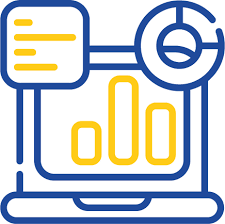Ce cours présente dans un premier temps les différents concepts et techniques des BD distribuées, une attention particulière est mise sur la conception (fragmentation, réplication) le traitement et l’optimisation des requêtes réparties. En seconde partie le cours présente les différents modèles et langages de données pour le développement de nouvelles applications modernes partant du modèle relationnel objet avec le langage SQL3 pour les données structurées complexes au standard XML pour la modélisation des données semi structurées.
- Teacher: Mohamed ElAmine Bouhadiba
Comment représenter interpréter des données pour faire des rapprochements, réaliser des classifications, établir des relations entre groupes, étudier la corrélation entre variables ou prévoir certains comportements, fournir des représentations graphiques dont il conviendra d’apprécier la qualité globale et locale.
- Teacher: Mohamed ElAmine Bouhadiba

Science exists because scientists are, first and foremost, writers and speakers. Scientific writing is therefore one of the most important activities for researchers.
This course helps first-year Master Artificial Intelligence and Decision Support Systems students to know how to conduct high-quality research, effectively communicating their results, and contributing to advancements in their field of study.
- Teacher: Sofiane AMARA
The "Formal Verification Techniques" course provides artificial intelligence students with comprehensive training in the foundations of formal logic and its applications for the verification and validation of complex systems. Key concepts covered include propositional and predicate logic, temporal logics, modal verification methods, and formal proof techniques. The course also emphasizes the use of data mining to extract valuable insights for automated decision-making systems. Through practical examples and guided exercises, students develop analytical skills by formalizing, verifying, and testing systems to ensure their reliability and accuracy.
- Teacher: Abdelkrim Bouadjemi

L’optimisation combinatoire occupe une place très importante en recherche opérationnelle et en informatique. De nombreuses applications pouvant être modélisées sous la forme d’un problème d’optimisation combinatoire (POC) telles que le problème du voyageur de commerce, l’ordonnancement de tâches, le problème de la coloration de graphes, etc. Cet enseignement permet à l’étudiant de définir un problème, de le modéliser et de choisir la bonne méthode de résolution
- Teacher: Mourad Bouatouche

- Distance learning
- Entertainment
- Telecommunications.
- Teacher: Oussama Derni